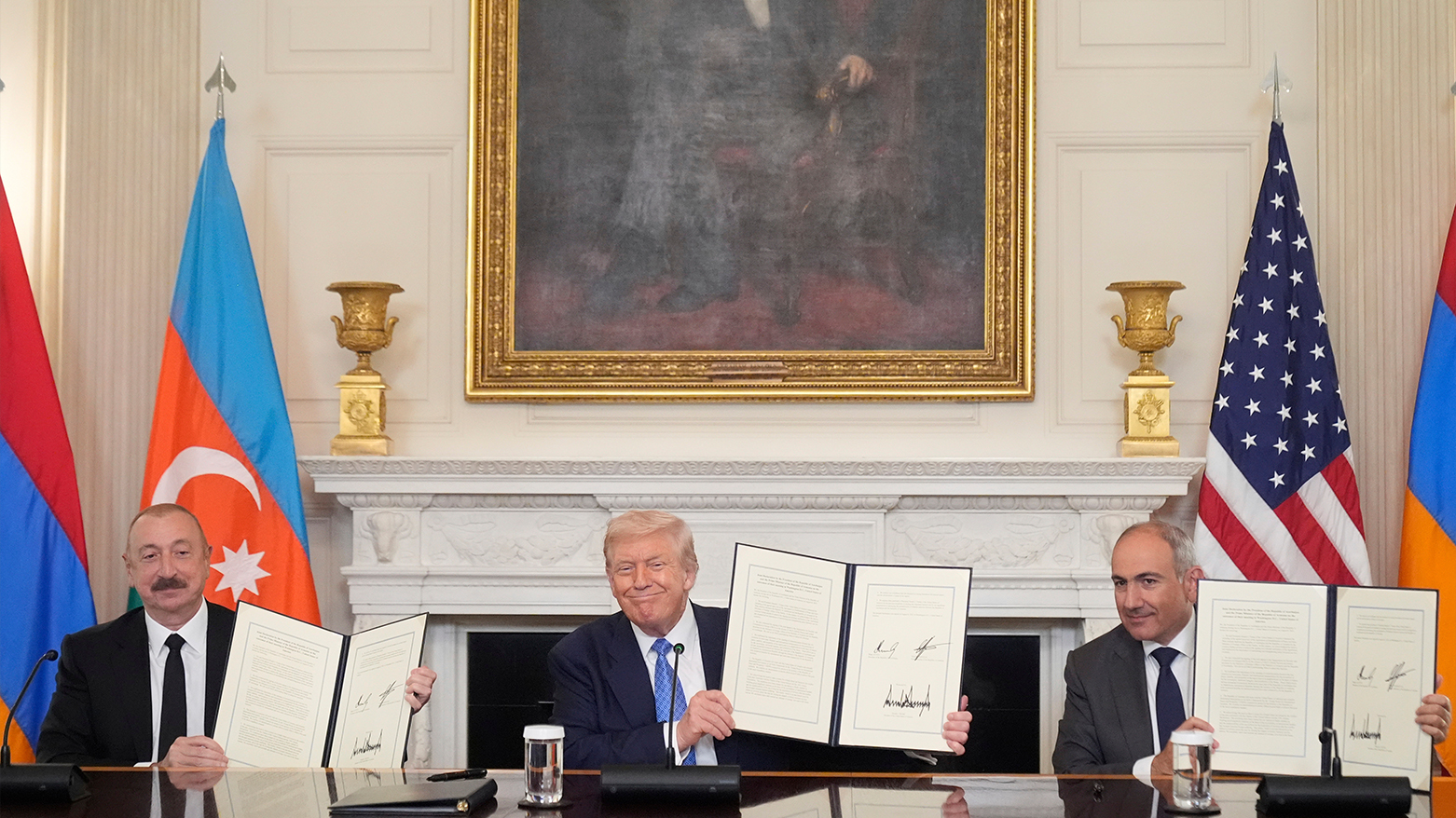U.S. Publishes Landmark Armenia-Azerbaijan Peace Documents, Detailing Strategic Shifts
The U.S. released documents from the historic Armenia-Azerbaijan peace summit, detailing the "Trump Route" corridor and new strategic partnerships, formalizing a major shift in the Caucasus that has drawn a strong rebuke from Iran.

ERBIL (Kurdistan24) – The United States has officially released the full texts of the agreements from the historic August 8 Washington summit between Armenia and Azerbaijan, providing comprehensive details on a peace framework designed to usher in a new era for the South Caucasus. The publication, announced in a media note by the State Department on Friday, makes public the momentous joint declaration signed by the two nations as well as a series of memoranda of understanding that establish new strategic partnerships between the United States and both Yerevan and Baku, formalizing major shifts in regional geopolitics, connectivity, and security cooperation.
The centerpiece of the released materials is the "Joint Declaration by the President of the Republic of Azerbaijan and the Prime Minister of the Republic of Armenia," which was witnessed by U.S. President Donald J. Trump.
The document confirms the initialing of the "Agreement on Establishment of Peace and Inter-State relations," emphasizing the need for its ultimate ratification to maintain and strengthen peace.
Critically, the declaration also formalizes a joint appeal to the Organization for Security and Cooperation in Europe (OSCE) for the closure of its long-standing Minsk Process.
The text reaffirms the importance of opening communications on the basis of sovereignty and territorial integrity, specifically citing "unimpeded connectivity" between the main part of Azerbaijan and its Nakhchivan Autonomous Republic through Armenian territory.
This will be facilitated by a framework for the "Trump Route for International Peace and Prosperity" (TRIPP), a connectivity project Armenia will develop with the United States and other mutually determined parties.
The declaration concludes with a resolute rejection of any future attempts at revenge, stating that the new reality "paves the way for closing the chapter of enmity between our two nations."
Alongside the joint declaration, the U.S. published a "Memorandum of Understanding" with the Government of Azerbaijan focused on establishing a Strategic Working Group to develop a formal Charter on Strategic Partnership.
This new partnership will focus on three key areas: regional connectivity including energy and trade; economic investment in areas like Artificial Intelligence and digital infrastructure; and security cooperation, which includes defense sales and counterterrorism cooperation.
The release also contained three separate Memoranda of Understanding with the Government of Armenia, outlining a significant deepening of bilateral ties. The "Crossroads of Peace Capacity Building Partnership" details U.S. support for enhancing Armenia’s infrastructure and border security to position it as an efficient transit hub.
A second MOU establishes an "AI and Semiconductor Innovation Partnership" to develop Armenia’s high-tech ecosystem and secure semiconductor supply chains.
The third, an "Energy Security Partnership," outlines collaboration on improving the resilience of Armenia’s energy system, including through civilian nuclear cooperation with small modular reactor technologies and modernizing its electricity grid.
The publication of these documents provides official detail to the events of August 8, which Kurdistan24 reported on extensively.
At the White House summit, Armenian Prime Minister Nikol Pashinyan and Azerbaijani President Ilham Aliyev signed the landmark peace accord. U.S. President Donald Trump, who hosted the ceremony, stated that the two countries were "committing to stop all fighting forever, open up commerce, travel, and diplomatic relations, and respect each other's sovereignty and territorial integrity."
He announced the lifting of longstanding restrictions on defense cooperation with Azerbaijan, a move President Aliyev called a historic event. In his remarks, President Aliyev stated, "We are starting the path towards a strategic partnership," while Prime Minister Pashinyan said the breakthrough "would simply not have been possible without President Trump's personal engagement."
The agreement was welcomed at the time by Kurdistan Region President Nechirvan Barzani, who congratulated President Trump for successfully brokering the "historic deal."
While the summit was hailed in Washington, the regional reaction was swift and critical, particularly from neighboring Iran.
As per previous reporting by Kurdistan24, top Iranian officials have vehemently opposed the creation of the transit corridor.
Ali Akbar Velayati, Advisor to the Supreme Leader on International Affairs, told the Tasnim News Agency that the passage "will not become a corridor owned by Trump, but a graveyard for Trump's mercenaries," and vowed that Iran would block its creation "with or without Russia."
Iran's Foreign Ministry spokesperson, Esmaeil Baqaei, confirmed that Tehran had initiated high-level consultations with Armenia to address its concerns, with Prime Minister Pashinyan reportedly assuring Iranian President Masoud Pezeshkian that any new regional pathways will operate strictly "within the framework of territorial integrity, sovereignty, and the jurisdiction of countries."
The spokesperson also declared a state of "zero trust" in Washington following a recent attack on Iranian territory, signaling deep-seated opposition to the U.S.-led regional arrangement.